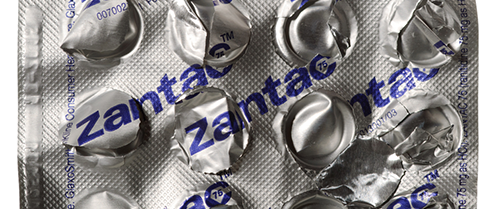Last week Bloomberg Businessweek published a detailed report on the development of the heartburn drug Zantac, which revealed that Glaxo’s own scientists along with various independent researchers warned the company about the potential danger of the drug for years.
Thousands of pages of documents, many of which have never been made public, were reviewed by Bloomberg Businessweek. The documents show that the FDA considered the cancer risks when they approved ranitidine in 1982. Glaxo, however, had not shared a critical study at that time by a Glaxo scientist that found that when combined with various levels of nitrites, which are found in the human digestive system, high levels of the carcinogen N-Nitrosodimethylamine (NDMA) were produced. Scientist Richard Tanner’s report was not shared with the FDA, the associate director of clinical research in the US, or the senior medical adviser for gastrointestinal research. Glaxo now says that when testing lower levels of nitrite which are closer to conditions in an actual human stomach, Tanner did not find NDMA.
Storage Issues
Glaxo also “backed flawed research designed to minimize concerns and chose not to routinely transport and store the medication in ways that could have eased the problem.” It turned out that ranitidine wasn’t always stable. It is sensitive to heat and humidity, and when exposed to too much of either, it can degrade. This creates conditions for NDMA to form in the drug itself. Consequently, the product label included instructions to store the pills in a dry place that didn’t exceed 86 degrees Fahrenheit.
Fast Forward to 2019
It wasn’t until 2019 that ranitidine, both in Zantac and in generic brands, was found to be tainted with high levels of NDMA, a probable carcinogen, before being ingested. Valisure, a private lab operating independently of the FDA began testing and said it had found extremely high levels of NDMA in Zantac and several generic versions of ranitidine. The FDA then issued an alert but said it would conduct its own tests of ranitidine. Within a month, at least two dozen countries removed the drug from store shelves, and several makers of the drug acted on their own to stop the supply. This is what finally prompted the release of the Tanner report, which had been kept quiet since 1982.
In April 2020, the FDA forced makers of any version and any dose of ranitidine to stop producing and selling it altogether. They said that even under normal storage conditions, NDMA levels increased in ranitidine. The FDA had deemed that a tiny amount of NDMA, 96 nanograms, was an acceptable amount in any drug. But they eventually revealed that they had detected 357ng of NDMA in a cool mint version of ranitidine. And five months later, they detected 931ng of NDMA.
Where It Stands Today
Although ranitidine is no longer being manufactured or sold, the FDA holds that there are “no consistent signals” that Zantac increases cancer risk. They based this on a statement in a study examining NDMA levels in the urine of people who took ranitidine. The statement relied on seven papers by outside scientists who did find links between ranitidine and breast cancer, and raised concerns about liver cancer. The authors of the papers said they didn’t have enough data to confirm a link. This is what the FDA is basing its current position on, even though three studies since then have found a link between ranitidine and bladder and liver cancers, among others.
More than 70,000 people who took Zantac or the generic ranitidine are suing manufacturers in various US state courts. Boehringer, Pfizer, and Sanofi settled one patient’s case in December, for an undisclosed amount. GlaxoSmithKline may settle also. The manufacturers are facing years of lawsuits in California, Delaware, and other states with the possibility of billions of dollars in damages.
Meanwhile, Sanofi conducted an investigation into how NDMA formed in Zantac tablets. Their hope was to be able to tweak the drug so that it could be approved by the FDA. They were unable to find an acceptable way to make Zantac with ranitidine. Sanofi has instead reformulated an OTC heartburn medication using famotidine, the active ingredient in Pepcid. They’re calling it Zantac.
